Note: This post may be too long to fully appear on some email clients. To see the full post, please click through to the online version.
The most talked about article this week in my particular circle of readers, writers, and teachers of reading and writing was from Rose Horowitch, writing in The Atlantic about “The Elite College Students Who Can’t Read Books.”
The article is an example of a common genre at The Atlantic, essentially, “You Elites Are Screwing Things Up, Signed, We Elites.” It is bizarre for one of the leading cultural organs of elite center-left culture to spend so much time castigating other parts of elite culture until you realize that one of the raison d’etres of The Atlantic is to police elite culture in order to maintain a status quo that’s amenable to a certain point of view. They publish some great stuff, but as a former subscriber, I have grown sour on the their larger editorial project, the breaking point of which was reached when Caitlin Flanagan was allowed to deliberately distort the underlying rationale and motive for the University of California system to drop the SAT as an admission requirement, and even when confronted with irrefutable evidence of her distortions, refused to retract the piece.
Anyway, I say this so we know to take the article on how students at Columbia University can’t read books with at least some grains of salt. We do not need to reach full moral panic stage about this stuff. (Post initial publication edit: I also recommend reading this newsletter from Carrie M. Santo-Thomas, one of the teachers who was interviewed by Horowitz's, who says “The Atlantic Did Me Dirty.” )
As I’ve written previously here, I think there’s clearly some shifts going on in terms of the relationship young people have with long texts, and that if we believe reading long texts is something we should continue to value, we gotta make some changes around the kinds of experiences schools and schooling provide to students.
But rather than dwell too much on a hot topic lots of other people are already batting around and that I deal with in my forthcoming book (preorder!) at some length, I wanted to pick up a thread from very late in the article where one of the quoted professors talks about how what his students say is their favorite book has changed over time.
I have no idea if this is accurate to any large swath of students, but I find it interesting. Some of have suggested that we are looking at a case of arrested development where college students are still naming a young adult series as a favorite, but I’m wondering if they’re not just expressing that middle school was the last time they were allowed to read out of a sense of personal interest or fun.
Mostly it got me thinking about my favorite books and how they’ve changed over the years as I’ve evolved as a reader and overall human being. I’m going to say that one’s favorite books can tell us a lot about who we were and what we cared about at any given time. Here, then, is a chronology of my favorite books during different parts of my life up through high school.
Age 0-5
This is going to stand in the period before I could read on my own, so we’re talking about books that were read to me. In truth, my favorite would have vacillated week to week or day to day, but I have to be mindful of space here. I want to say Goodnight Moon because it would make me look like a discerning little listener capable of fully appreciating the simple, yet elegant poetry of the Margaret Wise Brown classic, and to be sure, I’m pretty sure I liked that book, but in the end, I have to go with another classic Pat the Bunny. I just loved the faux fur you got to literally pat. I wore that shit out. I also slept with a “blankie” far beyond the age one would say is developmentally appropriate. Make of that what you will.
Age 6-7
Once I could read independently, I couldn’t get enough of Richard Scarry’s books, particularly what I consider his greatest masterpiece, What Do People Do All Day? Pretty sure I basically memorized these. I wonder how many of the jobs in the edition of the book I read don’t exist anymore. (Hello phone operator!)
Age 8-10
This is a close race between the “#1 sportswriter for kids,” Matt Christopher, and my ultimate pick, the greatest child detective of all time.
Age 11-12
This is the period when I started to devour the Newberry Medalist books, a formative experience about which I’ve written previously, and the most profound of those books was undoubtedly Bridge to Terabithia, which was perhaps my first introduction to adult emotions - in this case, grief - being conveyed through a fictional narrative.
Age 13-15
This was a period when I would’ve been devouring a lot of spy/adventure novels of the Robert Ludlum, Frederick Forsyth, Clive Cussler variety, but my favorite book of this era was A Hitchhiker’s Guide to the Galaxy. This book would inform the sense of humor I would attempt to display in the creative writing assignments I would do for teachers for the foreseeable future. (Apologies to them.) I was so into this book that I saved my lawn mowing money to buy the text-based computer game for the Apple II.
Age 16-18
While spy/adventure novels were the first adult books I read, by the end of high school I was mostly making my way through adult books with adult themes, not always understanding everything in their pages, but finding them compelling anyway. This is when I first fell for the nonfiction work of Tom Wolfe (The Kandy-Kolored Tangerine-Streak, Streamline Baby), for example, but I think the book I would have told my college professor was my “favorite” at the start of college would’ve been The World According to Garp, by John Irving. At this time, on the cusp of adulthood, it seemed like the book wrestled (pardon the frequent John Irving subject matter pun) with important adult things like desire, identity, family, and loyalty in a way that made the struggles make sense. It’s also a very entertaining read.
I can’t help but note that aside from the Newberry books, none of these were assigned in school. It’s not that I never liked a book assigned in school, but I can say that there was some psychological barrier immediately erected when a teacher told me I had to read something, or when I knew I was going to have to write some boring-ass paper about a particular book, even if I liked the book.
Those books tasted like medicine. The books I choose were like desert, except also (most of the time) being nutritious.
So, my wise, wide readers, what was your favorite book by the end of high school?
Links
This week at the Chicago Tribune, I read some tea leaves and wonder if we’re about to head into a publishing slump. At Inside Higher Ed, I wrote about how the $140 million Michael Bloomberg spent on the American Talent Initiative, meant to help low-income kids get into selective colleges was doomed from the start, and is not a good framework for helping low income students as a whole.
The grandaddy of the massive book preview, The Millions, has released their round-up of fall books.
The Chicago Review of Books has announced its shortlist for its awards across numerous different categories. Everyone will find something they want to read here.
I recommend taking some time to read this letter from Kurt Vonnegut sent to some high school students who invited him to visit their class.
In a previous newsletter about my enjoyment of Sally Rooney’s novels, I pointed out that while she’s a bestseller, despite being the subject of reams of cultural coverage, she is not a mega seller. In fact, her book was not the number one new work of fiction in the week of its release. That honor went to a very reliable mega-selling novelist.
I know that I have a decent proportion of people working in higher education in my audience, this week’s piece from my friends
is for them: “Faculty, Rejoice: Gmail Can Now Translate Deanspeak,” by Jane G.Recommendations
1. The Long Valley by John Steinbeck
2. Demon-Haunted World: Science as a Candle in the Dark by Carl Sagan with Ann Druyan
3. Fugitive Pieces by Anne Michaels
4. Speedboat by Renata Adler
5. History of the Rain by Niall Williams
Blair P. - Kelowna, BC
Whenever someone has been reading John Steinbeck, I want to know if they’ve also read John Fante, so that’s my recommendation, Ask the Dust.1
I’m always open for recommendation requests. If you want your custom reading recommendation, the link below is where you go.
Would it be interesting to do a sequel tracing my favorite books from college to the present day? Interesting for me, maybe. I’m not sure about you all.
Anyway, if you’re inclined, I’m very curious to hear what books you were into up to the official start of your adulthood, and why you think you were into them.
As always, I appreciate you attention and choice to read The Biblioracle Recommends.
John
The Biblioracle
All books (with the occasional exception) linked throughout the newsletter go to The Biblioracle Recommends bookstore at Bookshop.org. Affiliate proceeds, plus a personal matching donation of my own, go to Chicago’s Open Books and an additional reading/writing/literacy nonprofit to be determined. Affiliate income for this year is $102.70.



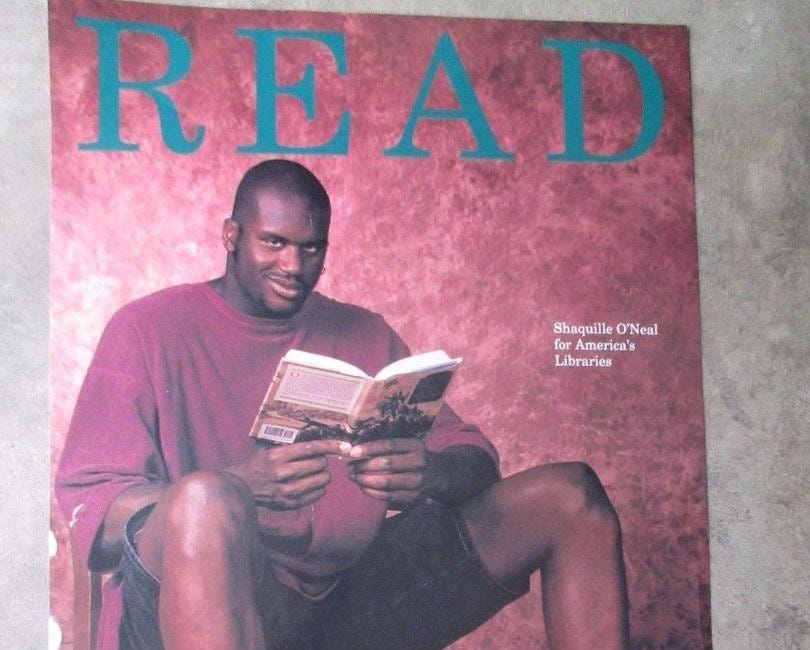
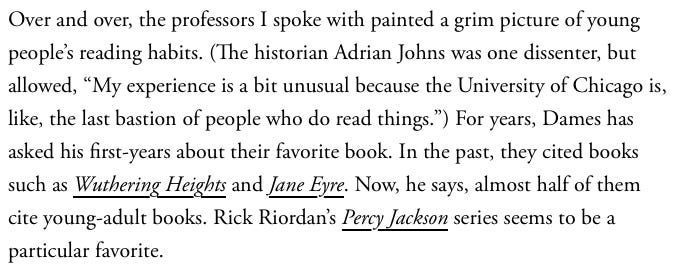
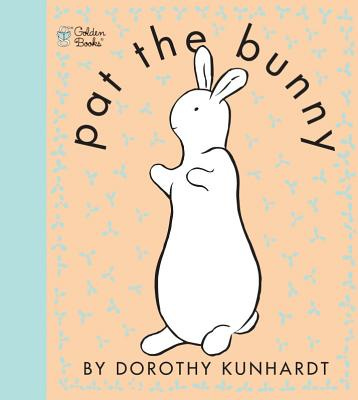
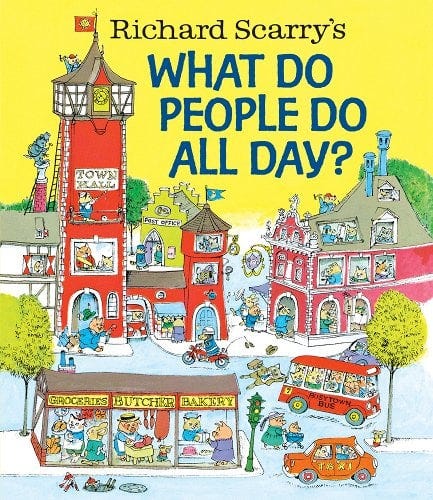
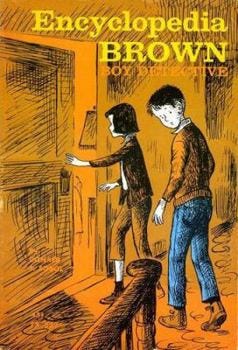
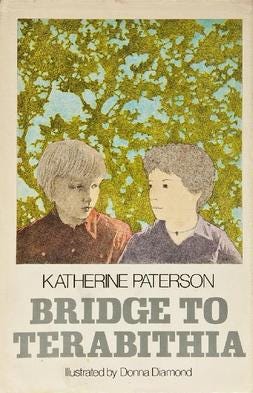
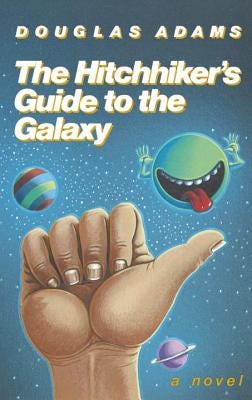
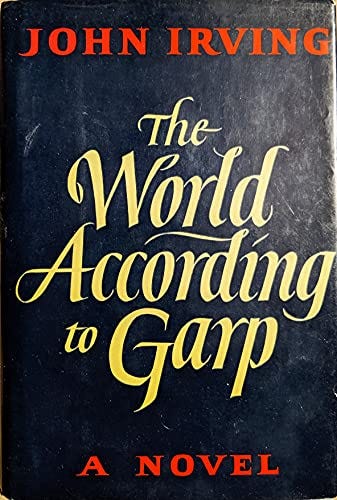

My loving memories of reading in middle school revolve around the Nancy Drew series and Black Beauty. Then, drudgery of reading took hold. However, my junior English teacher assigned Rebecca. Between Mrs. Danvers’ cruelty and Maxim’s avoidance, I returned to reading for pleasure. I became a high school English teacher because of this experience and worked to help students find a book(or two :D) that were a good fit.
Thank you for this! You prompted my own list. I didn't start reading for pleasure anything that was considered "great literature" at the time until I was in college.
Millions of Cats
Wicked Pigeon Ladies in the Garden
Harriet the Spy
The Lion, The Witch & The Wardrobe
The Hobbit
Jonathan Livingston Seagull (!)
Fletch